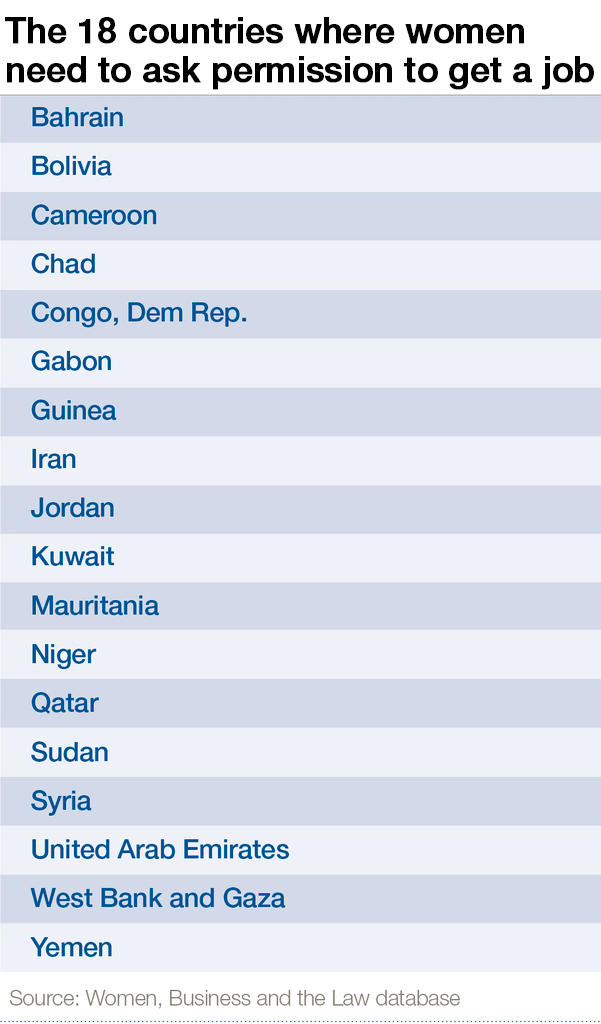18 countries where women need their husband’s permission to work


Get involved with our crowdsourced digital platform to deliver impact at scale
Stay up to date:
Gender Inequality
All are equal in the eyes of the law. Except, it seems, if you’re a woman. Of 173 economies covered in a recent World Bank study on barriers to women’s entrepreneurship and employment, 155 of them have at least one law impeding women’s economic opportunities.
The report examined differences between men and women in areas such as their legal right to register a business, travel outside the home or country, open a bank account or own property.
In some areas, the findings are pretty encouraging. Since the last edition of the biennial report, 65 economies have carried out 94 reforms aimed at increasing women’s economic opportunities. The Middle East and North Africa, along with Europe and Central Asia, stand out for the progress they’ve made in the past two years.
But one indicator in particular shows how far we still have to go to achieve universal gender parity: in 18 countries, women still need their husband’s permission to get a job.

While women outside these countries won’t need a guardian’s approval to work, they could still find it difficult getting a job in some fields. For example, any entrepreneurial Argentinian women looking to set up their own distilleries are out of luck, as this is just one of many professions open only to men in the country. The same goes for any budding female woodworkers in Russia.
The report, which identifies a total of 943 legal gender differences across the countries it analysed, points out that these laws are not just damaging to women but to society more widely. “These inequalities impede development, hinder prosperity and undermine national competitiveness.”
Have you read?
Are you working for free because you’re a woman?
Why gender inequality is worse than you think
Where’s the best place to be a woman?
Author: Stéphanie Thomson is an Editor at World Economic Forum
Image: A veiled Saudi woman makes coffee as she works at a coffee shop in Tabuk. REUTERS/Mohamed Alhwaity
Don't miss any update on this topic
Create a free account and access your personalized content collection with our latest publications and analyses.
License and Republishing
World Economic Forum articles may be republished in accordance with the Creative Commons Attribution-NonCommercial-NoDerivatives 4.0 International Public License, and in accordance with our Terms of Use.
The views expressed in this article are those of the author alone and not the World Economic Forum.
The Agenda Weekly
A weekly update of the most important issues driving the global agenda
You can unsubscribe at any time using the link in our emails. For more details, review our privacy policy.
More on Gender InequalitySee all
Claude Dyer and Vidhi Bhatia
April 18, 2024
Morgan Camp
April 9, 2024
Rida Tahir
April 9, 2024
Andrea Willige
April 8, 2024
Gilles Roucolle and Sumati Sharma
April 5, 2024







